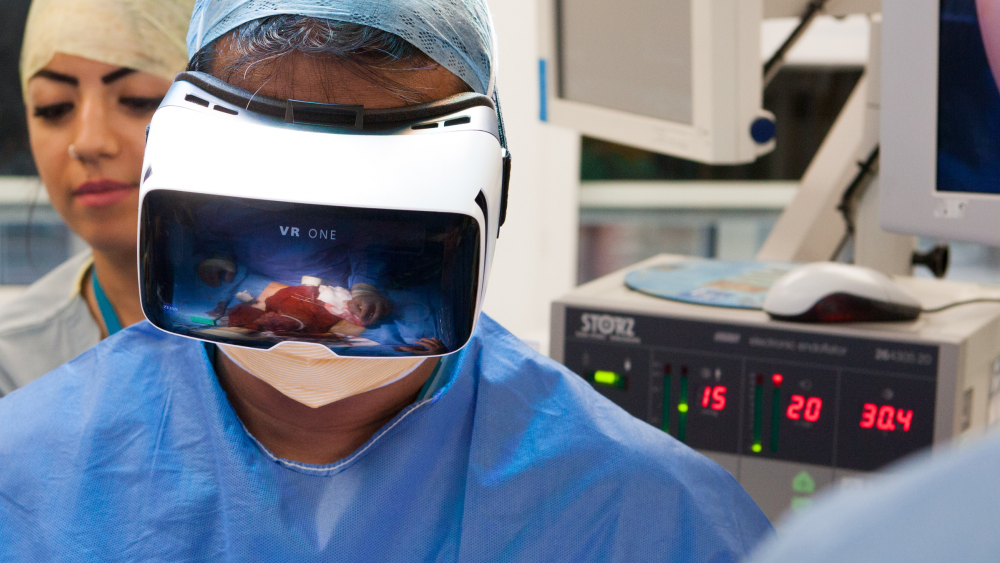Dubai police officers will wear Google Glass headsets equipped with facial recognition software to apprehend traffic violators and hunt down criminals.
Google Glass users “can take pictures or record video without using their hands, send the images to friends or post them online, see walking directions, search the Web by voice command and view language translations,” according to the New York Times. But developers are creating Glass apps beyond those basic capabilities.
Using custom apps, the device has a myriad uses: helping conservationists track endangered animals in Nepal, providing instant mapping info to firefighters in action in North Carolina, processing passenger check-ins at London’s Heathrow airport, providing museum tours using augmented reality in Washington, D.C., and assisting surgeons in San Francisco. Now, the device is helping fight crime in Dubai.
Smart Crime Fighting
Members of the Dubai Police Force will soon wear Google Glass devices to help them pursue traffic violators and crime suspects. The wearable device is paired with a facial recognition software developed by Dubai police that matches a suspect’s face print with an online database, then alerts the officer wearing the device, according to Reuters.
During the first phase of the rollout, the device will be used by traffic cops “to combat traffic violations and track vehicles suspected of involvement in motoring offences.” Detectives will use the device during the second phase.
The Dubai police department is the latest law enforcement unit to use Google Glass to fight crime. The New York Police Department (NYPD) is also testing the device for surveillance and monitoring. Unlike typical recording devices, Glass is interactive and can provide officers hands-free voice-command features, location information, and in the case of Dubai—instant access to a crime database.
Guiding Tourists
Google Glass is helping tourists find their way around Dubai as well. The Roads and Transport Authority (RTA) recently launched an app that links up with the device to provide public transport routes, schedules, and available modes of transport (bus, marine stations, Dubai Metro train) and points them to popular tourist spots and restaurants around the city.
“Our idea is to stay ahead in terms of technology and provide the services required through all the tech channels available,” Abdullah Al Madani, CEO of RTA's Corporate Support Services Sector, told Gulf News. “We are the first city in the region to provide transport-related information through Google Glass.”
Keeping the Power Flowing
Dubai is also using Google Glass to maintain its power grid. Dubai’s utility company DEWA (Dubai Electricity and Water Authority) developed a smart app that enables engineers and technicians to detect any faults in stations and substations, and sends notifications—such as location information and images of the fault—to its Enterprise Resource Planning System from SAP.
“Dewa has realised the effective role of smart apps in providing reliable high-quality services,” Moza Al Akraf, acting chief information officer, DEWA, told UAE Today. “This supports its plans that keep pace with the ongoing development of smart services in the UAE and the vision of our wise leadership.”
Changing Medicine
Fighting crime and managing utilities are important, but it’s in healthcare that Google Glass is making some of the most meaningful impact. As a wearable, hands-free technology, Google Glass allows doctors to focus more on patients.
“By attempting to free data from desktop computers and portable devices like phones and tablets, and by placing it right in front of our eyes, Google Glass is trying to enhance a doctor’s ability to retrieve, see, and disseminate information rapidly and efficiently,” Dr. Praveen Pillai, NMC Healthcare, Dubai, UAE, wrote in Arab Health Magazine.
Emergency room doctors at Beth Israel Deaconess Medical Center (BIDMC) in Boston are using a customized version of Glass that can securely retrieve patient information from the hospital’s EHR network and display it on the device’s screen. Surgeons at the University of California, San Francisco, wear the device during surgery to guide instruments.
“There’s relatively little shift of attention between seeing the patient in front of you and seeing critical information in your field of vision,” lung surgeon Dr. Pierre Theodore told the NYT. “I believe it can be and will be revolutionary.”
Doctors in Dubai and the UAE will likely use Google Glass and other wearable devices while working in increasingly digitized clinical environments, especially if privacy and security concerns are addressed.
As Dr. Pillai said, “It’s clear that change is coming to medicine and Google Glass as a wearable model heralds an evolutionary step forward.”
Log in or register for FREE for full access to ALL site features
As a member of the nuviun community, you can benefit from:
- 24/7 unlimited access to the content library
- Full access to the company and people directories
- Unlimited discussion and commenting privileges
- Your own searchable professional profile








.jpg)
